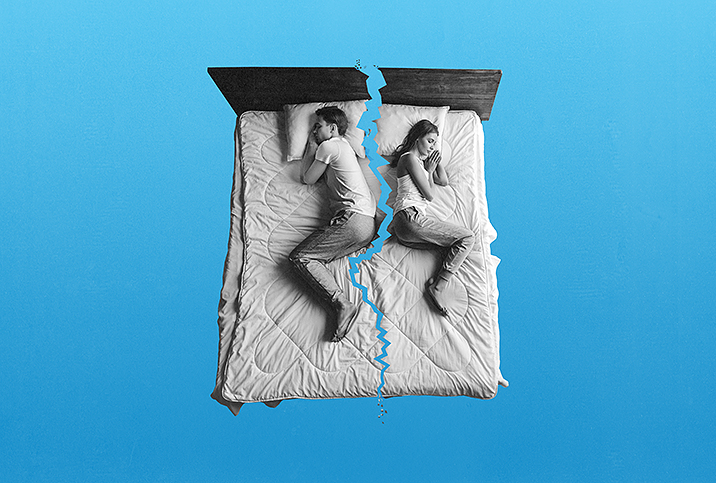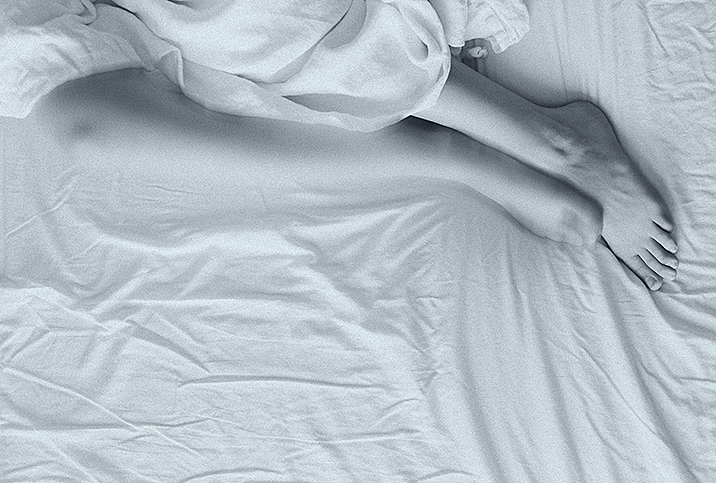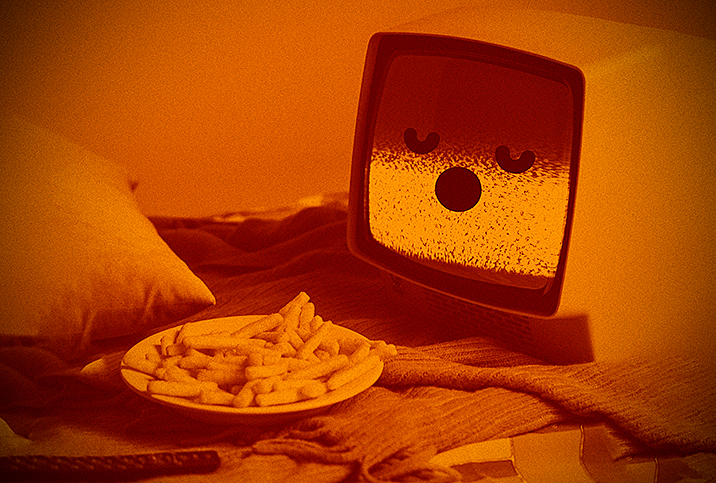Could Sleeping Separately Actually Help Your Relationship?

When my partner’s housemate moved out two years ago, we decided it made sense for me to move in. Because my partner’s bedroom has minimal storage options and even less breathing space, I imagined our sleeping arrangement would consist of my curling up in his bed each night and then meandering into the second, more generous room in the mornings. I assumed it would double as space for my excessive wardrobe and a spot for friends to crash.
However, within a few months, a new pattern emerged. We were slumbering in separate beds practically every night. And we loved it.
I was sleeping like a baby and thrilled to have my own little oasis in our cramped home, but sometimes I was bothered by a niggling feeling we were somehow doing it “wrong,” especially when friends gave me questioning looks as I discussed our new arrangement. I couldn’t put my finger on why separate beds were such a taboo: Does dozing off next to your partner have a positive impact on the relationship? Or do couples actually get stronger when they prioritize sleep quality over social norms?
It turns out overnight spooning does bring legitimate relationship benefits. “Sleeping in the same bed can create intimacy and connection,” said Yvonne Filler, a relationship therapist based in London. “Physical touch releases both dopamine and serotonin, which can help us relax and bond with our partner, and for some couples, [chatting in bed at the end of the day] is the only chance for uninterrupted communication.”
But when your sleep quality is detrimentally impacted by your partner due to disorders such as insomnia or restless legs syndrome, schedule differences or even reading in bed or snoozing with a small light on, both physical and relationship health can begin to suffer. “It’s fair to say that sleeping apart from your partner can be a good decision if it means you wake up in a better mood feeling refreshed and well-rested,” said Guy Meadows, Ph.D., a sleep specialist and co-founder of Sleep School. “[That] can only be a good thing for your relationship.”
It’s perfectly possible to sleep separately and retain a healthy connection, and some couples will even come out stronger if sleepless nights were causing resentment and ill-health.
If you struggle to share a bed harmoniously, you’ll probably begin to resent your partner as your health deteriorates due to tiredness. On the other hand, Meadows said, healthy sleep patterns mean you will “experience better mental focus and motivation and feel happier and more emotionally balanced.” So, instead of becoming snappy and bitter with each other, you’ll have a greater capacity to interact in a more positive, loving way throughout the day. Plus, you’ll always have a private sanctuary when you need a little space.
If you think sharing a bed is harming your health or relationship, Filler recommended a trial “sleep divorce,” with honest communication so that neither party feels hurt or confused—“it should never feel like a punishment,” she added. If one person feels like they’ve been banished from their partner’s bedroom, this can lead to friction and worry, so make sure you agree up front on how the arrangement will work. If you have children, it’s worth including them in some of those discussions, too.
The thought of a sleep divorce may be daunting, but it doesn’t have to spell the end of intimacy. “There is no doubt that the bonds created by sleeping in the same bed can be beneficial for the couple's relationship and help resolve problems and disagreements that have occurred in the day,” Filler said. “But if couples work hard to ensure they have open communication and they are physically affectionate with each other at the end of a day, then the same bonding experience can be achieved.”
While retiring to separate chambers can sometimes indicate a suffering relationship, every couple is different. It’s perfectly possible to sleep separately and retain a healthy connection, and some couples will even come out stronger if sleepless nights were causing resentment and ill-health.
Even if my friends think it’s a little weird, the nights apart have proved beneficial for me and my partner. We both get the rest we need and we always have access to a private space, which has been an unexpected blessing throughout the pandemic. Many couples get their dose of dopamine while snuggling up under the covers; we’ve been able to get ours by making sure we bond before we catch some z's. It may sound old-fashioned or even unromantic, but for us, it works.


















